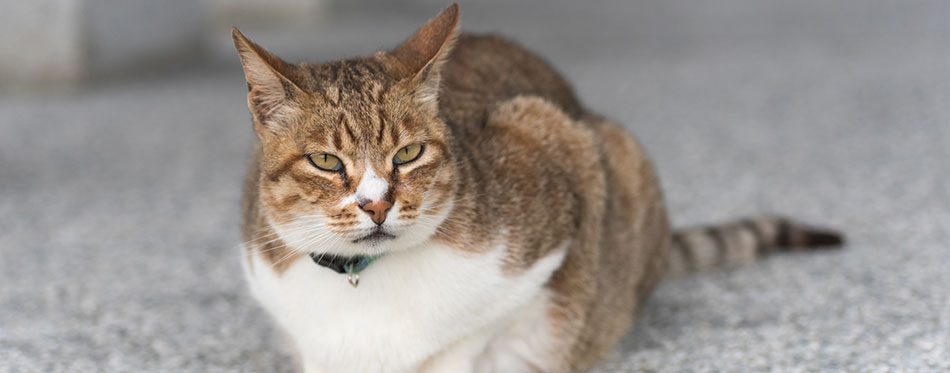People know that cats have nine lives. This gives these pets extra-long life that they can use to explore their world and enjoy feline life. While a spayed or neutered kitty that stays indoors can live up to 16 years, they can live far longer. For instance, Crème Puff holds the Guinness World Record for being the oldest cat at 38 years and 3 days. This domestic cat came into this world on the 3rd of August 1967 and lived until the 6th of August 2005. If Crème Puff can achieve such a feat, it is not impossible that other cats can reach up to the third decade of life. So, how long do these pets live for?
How Long Can Cats Live?
Given the correct diet and proper care of cats, indoor kitties can live up to 15 years. This is the average, of course. Some exceptional cases can reach up to 20 years; others may also reach 30 years. While Crème Puff holds the record, the oldest living cat is a Siamese named Scooter. This cat is from Mansfield, Texas and born on the 26th of May 1986.
On the other hand, cats that live outdoors may live shorter. On the average, they can live up to 7 or 8 years. This is more than half the average lifespan of indoor cats in years. And it is easy to see why. Cats that live outdoors are not only exposed to the elements; they are also in danger of attacks or aggression from other animals like dogs, stray cats, and large animals. Outdoor cats also do not have access to good nutrition, relying most of the time on food scraps in the garbage can. Their environment exposes them to a lot of risks or dangers.

Factors that Can Affect a Cat’s Longevity
No two cats, like any other organism, are alike. They may be of the same breed or come from the same household, but their lifespan may still differ. The reason is quite obvious. There are certain factors that may have a different impact on different cats. How a cat responds to these factors can help spell the difference between a durable kitty and a short-lived feline.
- Nutrition
Obesity and malnutrition are two of the fundamental issues that beset modern kitties. Feeding too much calories without increasing the physical activities of cats can lead to feline obesity. The pet risks developing other health problems that can shorten its life. The same is true with malnutrition. Nutrients like minerals and vitamins are necessary for the optimum function of organs. In cases of nutrient deficiencies, these organs can develop dysfunction. Nutrient deficiencies or excesses can all contribute to a shorter lifespan.
Take a look at our guides on Cat Food for Weight Loss and Vitamins For Cats.
- Access to Good Veterinary Care
Regular veterinary checkups can help improve the identification of potential health problems. Vets can help address a concern before it becomes a full-blown disease. Vaccinations and immunizations are important in the prevention of certain cat diseases. Screening tests can also help provide a more accurate picture of the health status of the cat.
Modern veterinary care utilizes evidence-based clinical practice guidelines in the management of different pet health conditions. What this means is that veterinarians now have a much better understanding of the different diseases that affect cats. They are now in a better position to treat such diseases in a more effective manner. There are also newer treatments and therapies as well as improved medications. These can all help improve the lifespan of cats.
- Pet Insurance
Pet insurance helps guarantee access for your cat to better veterinary care and services. This means, pet parents no longer have to worry about their pet cats not receiving the best possible care. Some veterinary services are very expensive that they may be out of a family’s financial reach. With a pet insurance, their pet cat can avail of both diagnostic tests and treatment procedures that they would not otherwise be able to avail of because of the cost.
- Growing Awareness of Pet Families
More and more pet families are recognizing the importance of considering the pet as a member of the family. Pet cats now have a share of the family budget, often in terms of high-quality pet food, vet care, and others. This can help improve the lifespan of cats.
- Indoor vs. Outdoor Living
In general, indoor cats live as much as twice longer than outdoor cats. We already mentioned that outdoor cats are exposed to different threats. These can have an adverse effect on their lifespan. Indoor cats, on the other hand, have all the care and protection they need. Hence, they live a lot longer.
Some Breeds Do Live Longer
There are some breeds of cats that are able to live a lot longer than others. Here is a list of the cat breeds that have the longest lifespan.
- Burmese – 35 years on record; although the average is about 18 to 20 years
- Sphynx – 34 years on record; 15 to 20 years on average
- Ragdoll – 15 to 25 years
- Savannah – 17 to 20 years
- Siamese – 16 to 20 years
- Bombay – 21 years on record; 15 to 20 on average
- Egyptian Mau – 15 to 20 years
- Persian – 15 to 20 years
- Nebelung – 15 to 18 years
- Manx – 15 to 16 years
It is quite interesting to note that these feline breeds share one thing in common: they are very affectionate and sociable. This begs the question whether the relationships they form with their human families play a very important factor in their longevity. Social relationships can help improve a cat’s sense of well-being, allowing it to be happier and feel less stressed. With a reduction in the effects of stress on the cat, it is possible for it to reach well beyond the second decade of life.

A Look at the Life Stages of Felines
Like all living organisms, cats go through different life stages. Each stage has its own set of characteristics that can help define the maturity of the kitty.
- Kitten
These are young cats that are between the ages of 0 and 6 months. If you correlate this with human age, however, the first 6 months of a kitten’s life are equivalent to the first 10 years of a human. Therefore, you can expect rapid growth and development in this stage. The kitten will be exploring its surroundings and can have a rambunctious nature. This is also the best time to neuter the kitten.
- Junior Cat
This is a cat that is in its 6th month to 2nd year of life. This is the equivalent to a 10- to 24-year-old human. Hence, the first two years of a cat’s life are almost equivalent to the first 2 decades of a man’s life. By the 2nd year of life, the cat should have achieved its adult size. It should also achieve sexual maturity by this stage. This is a transitional period whereby the play behavior of kittens should now meet “adult” standards.
- Prime Cat
As the name implies, this is a stage whereby the cat is at its prime. It is equivalent to the human age of 28 to 40 years or the young adult stage. It lasts from the time the cat enters its 3rd year until its 6th year of life. While the cat is already mature, pet parents should still stay abreast of their pet’s vaccination schedules.
- Mature Cat
Cats in their seventh to 10th year of life are already considered as mature cats. It’s the same as individuals who are 44 to 56 years old. It’s like middle-age among cats. By this stage, your cat may already show signs of slowing down. It can also begin putting on some weight. Food control and exercise are an absolute must during this stage in the cat’s life.
- Senior Cat
Similar to a man who is between 60 and 72 years old, a senior cat is one that is between 11 and 14 years of age. They require more mental stimulation if you want them to stay happy and healthy. Food puzzles are always a great way to keep senior kitties entertained. This will also help address a growing concern for feline obesity that may be secondary to a reduction in physical activity.
- Geriatric Cat
We always equate geriatric with old age and seniors. However, in the cat world, a senior and a geriatric cat are two different life stages in a cat’s life. Geriatric kitties are those that are at least 15 years old. In human terms, this is about 76 years old. A typical day will comprise of snoozing all day long. Pet parents should keep an eye on any change in the cat’s behavior such as increased vocalizations and increased frequency of toileting. Problems in mobility may now be more evident. If you notice anything out of the ordinary, then a visit to your vet is necessary.
Cats can live longer lives than dogs. With proper care and the right nutrition plus a safe environment, indoor cats can reach a ripe age of 15 to 20 years.
Sources:
- How Long Do Cats Live? – PetMD
- How Long Do Cats Live? – Blue Cross

